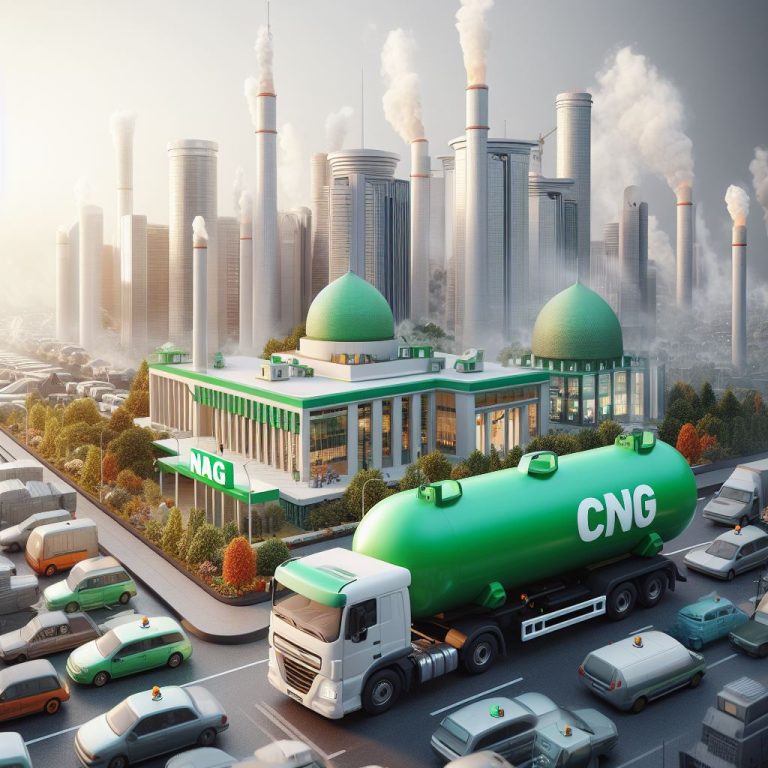Nigeria is one of the largest oil-producing countries in the world, but it still relies heavily on imported oil to meet its energy needs. This dependence on foreign oil can be expensive and subject to price fluctuations on the global market. However, there is a cleaner and more cost-effective alternative to traditional gasoline and diesel fuels: Compressed Natural Gas (CNG).
CNG is a fossil fuel that is composed primarily of methane gas, which is extracted from natural gas wells and then compressed to less than 1% of its volume at standard atmospheric pressure. CNG is a cleaner fuel source than gasoline or diesel because it produces fewer emissions when burned, including carbon dioxide, carbon monoxide, and nitrogen oxides¹.
CNG has several benefits for the Nigerian economy. First, it can help reduce the country’s dependence on imported oil. Second, it can help reduce air pollution in urban areas by reducing the number of vehicles that run on traditional gasoline or diesel fuels. Third, it can create new jobs in the natural gas industry and related sectors.
President Bola Ahmed Tinubu has approved the establishment of the Presidential Compressed Natural Gas Initiative (PCNGI) to ease the impact of fuel subsidy removal on Nigerians by reducing energy costs. The initiative aims to revolutionize the transportation landscape in Nigeria by targeting over 11,500 new CNG-enabled vehicles and 55,000 CNG conversion kits for existing PMS-dependent vehicles. It will simultaneously bolster in-country manufacturing, local assembly, and expansive job creation in line with the presidential directive.
The initiative comprises a Comprehensive Adoption Strategy that includes empowering workshops programs with a nationwide network of workshops, local assembly, and job creation as key points of emphasis with an initial focus on mass transit systems and student hubs in order to significantly reduce transit costs for the general populace in the immediate term. The PCNGI will facilitate the provision of workshops across all geopolitical zones and states with essential kits and comprehensive training for newly employed staff, thus creating new opportunities for technical skill development and employment for Nigerians.
CNG is also more cost-effective than traditional gasoline or diesel fuels. According to a report by the International Association for Natural Gas Vehicles (IANGV), CNG can be up to 40% cheaper than gasoline or diesel fuels. Additionally, CNG is safer than traditional fuels because it is lighter than air and disperses quickly in case of a leak or spill.
CNG has Numerous benefits for Nigeria’s economy, including reducing dependence on imported oil, reducing air pollution in urban areas, and creating new jobs. President Bola Ahmed Tinubu’s approval of the Presidential Compressed Natural Gas Initiative (PCNGI) is a step in the right direction towards achieving these goals.
The initiative aims to revolutionize Nigeria’s transportation landscape by targeting over 11,500 new CNG-enabled vehicles and 55,000 CNG conversion kits for existing PMS-dependent vehicles while simultaneously bolstering in-country manufacturing, local assembly, and expansive job creation. Furthermore, CNG is more cost-effective and safer than traditional gasoline or diesel fuels.
Nigeria has an opportunity to lead Africa into a cleaner future by embracing CNG as a viable alternative fuel source. By doing so, Nigeria can reduce its dependence on imported oil while simultaneously creating new jobs and reducing air pollution in urban areas. President Bola Ahmed Tinubu’s approval of the Presidential Compressed Natural Gas Initiative (PCNGI) is a step in the right direction towards achieving these goals. It’s time for Nigeria to take action towards a cleaner future.

